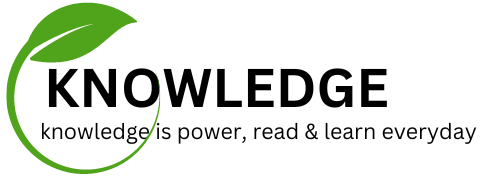1. Introduction
-
- Importance of Personal Development
- Overview of the 5 Easy Ways to Be Your Best
2. Cultivate a Positive Mindset
-
- Understanding the Power of Positivity
- Strategies to Develop a Positive Mindset
- Practice Gratitude
- Surround Yourself with Positivity
- Benefits of a Positive Mindset
3. Set Realistic Goals
-
- The Importance of Goal Setting
- How to Set Achievable Goals
- Use the SMART Method
- Break Down Larger Goals
- Staying Motivated
4. Embrace Healthy Habits
-
- The Role of Physical Health
- Establishing a Healthy Routine
- Balanced Diet
- Regular Exercise
- Mental and Emotional Wellbeing
- Mindfulness Practices
- Stress Management
5. Continuous Learning and Self-Improvement
-
- Why Learning Matters
- Ways to Continuously Learn
- Read Regularly
- Take Up New Hobbies
- Overcoming Challenges in Learning
6. Build Strong Relationships
-
- The Importance of Social Connections
- How to Build and Maintain Relationships
- Effective Communication
- Showing Appreciation and Support
- Networking for Personal and Professional Growth
5 Easy Ways to Be Your Best

Everyone strives to be their best, but sometimes it feels like an uphill battle. The journey to personal development is unique for each individual, yet some universal strategies can help anyone improve. In this article, we’ll explore five easy ways to be your best, breaking them down into manageable steps to help you start making positive changes today.
1. Cultivate a Positive Mindset
Understanding the Power of Positivity
-
- A positive mindset is a powerful tool. It influences how we perceive the world and react to challenges. When you approach life with optimism, you’re more likely to see opportunities rather than obstacles. This perspective can significantly impact your overall happiness and success.
2. Strategies to Develop a Positive Mindset
Practice Gratitude
-
- One of the simplest ways to foster positivity is to practice gratitude. Take a few moments each day to reflect on what you’re thankful for. This practice shifts your focus from what you lack to what you have, creating a more positive outlook.
Surround Yourself with Positivity
-
- Your environment plays a crucial role in shaping your mindset. Surround yourself with positive influences, whether they are people, books, or activities that uplift and inspire you. Distance yourself from negative influences that drain your energy.
Benefits of a Positive Mindset
-
- A positive mindset leads to numerous benefits, including improved mental health, better stress management, and enhanced relationships. When you’re optimistic, you’re more resilient and better equipped to handle life’s challenges.
3. Set Realistic Goals
The Importance of Goal Setting
-
- Goals give your life direction and purpose. They provide a roadmap for where you want to go and what you want to achieve. Setting realistic goals ensures that you have attainable milestones to work towards, which keeps you motivated and focused.
4. How to Set Achievable Goals
Use the SMART Method
-
- SMART stands for Specific, Measurable, Achievable, Relevant, and Time-bound. Using this framework helps you create clear and reachable goals. For example, instead of saying “I want to be fit,” a SMART goal would be “I want to run a 5K within three months.”
Break Down Larger Goals
-
- Large goals can feel overwhelming. Break them down into smaller, manageable steps. This approach makes it easier to track your progress and stay motivated.
Staying Motivated
-
- Keeping your motivation high is crucial. Celebrate your small wins along the way and remind yourself why you set the goal in the first place. This ongoing reflection helps maintain your drive and commitment.
5. Embrace Healthy Habits
The Role of Physical Health
-
- Your physical health has a profound impact on your overall well-being. By adopting healthy habits, you not only improve your physical fitness but also enhance your mental and emotional health.
6. Establishing a Healthy Routine
Balanced Diet
-
- Eating a balanced diet rich in fruits, vegetables, lean proteins, and whole grains fuels your body with the nutrients it needs to function optimally. Avoid excessive consumption of processed foods, sugar, and unhealthy fats.
Regular Exercise
-
- Regular physical activity is essential. Aim for at least 30 minutes of moderate exercise most days of the week. Whether it’s walking, running, or yoga, find something you enjoy to keep it sustainable.
7. Mental and Emotional Wellbeing
Mindfulness Practices
-
- Incorporate mindfulness practices into your daily routine to enhance your mental and emotional well-being. Techniques such as meditation, deep breathing exercises, and journaling can help you stay grounded and present.



